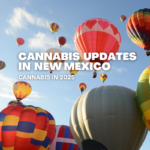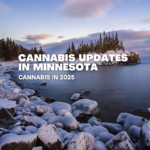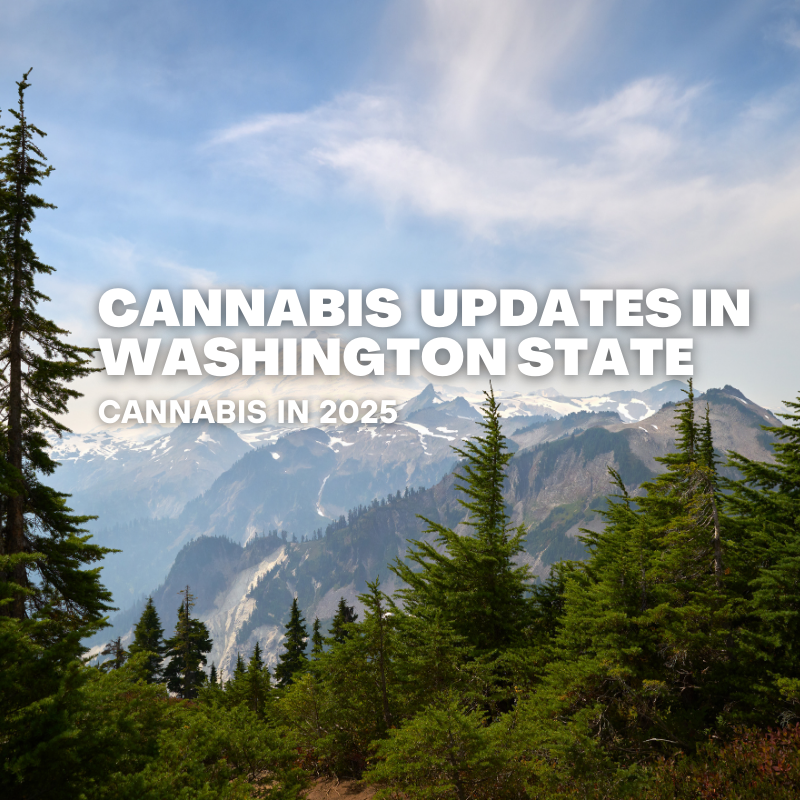Washington State’s Cannabis Industry in 2025: Growth, Trends, and Opportunities
Washington State made history in 2012 by becoming one of the first U.S. states to legalize recreational cannabis through Initiative 502. Since then, Washington has grown into one of the largest and most competitive cannabis markets in the country. In 2025, the state’s cannabis industry continues to evolve, driven by consumer demand, innovative products, and a regulatory framework that encourages growth while ensuring safety and compliance.
This blog post explores Washington’s cannabis landscape in 2025, including market growth, key trends, regulatory updates, and future opportunities for businesses and consumers.
1. Washington State’s Cannabis Market in 2025: Strong Growth and Robust Sales
As one of the first states to fully legalize recreational cannabis, Washington has laid a solid foundation for the industry, with a thriving market that benefits from both medical and adult-use cannabis sales. By 2025, Washington’s cannabis market is projected to surpass $3 billion annually, continuing its status as one of the most successful legal cannabis markets in the U.S.
What’s Happening in 2025:
- Steady Market Expansion: The state continues to see steady year-over-year growth in cannabis sales. While the market is now more mature than it was in the early years of legalization, demand remains high across both medical marijuana patients and recreational consumers. Washington’s high-quality cannabis is known throughout the country, attracting both local consumers and out-of-state tourists.
- Consumer Demand for Premium Products: Washington consumers are becoming more discerning, seeking out premium flower and artisan products. The state has seen a growing demand for craft cannabis, including boutique strains and locally sourced products, often cultivated using sustainable and organic practices. This trend is expected to continue into 2025, as more consumers prioritize quality over quantity.
- Medical Cannabis Sales: While the focus has shifted somewhat to recreational sales, medical cannabis remains an important segment of Washington’s cannabis industry. Over 250,000 registered medical marijuana patients rely on cannabis for relief from a variety of conditions, including chronic pain, anxiety, PTSD, and insomnia.
2. Washington’s Cannabis Regulatory Framework in 2025
Washington’s cannabis regulatory system has been one of the most established in the U.S. since its inception in 2012. The Washington State Liquor and Cannabis Board (WSLCB) has played a crucial role in shaping a framework that ensures consumer safety, business transparency, and product quality.
What’s Happening in 2025:
- Refined Regulatory Processes: By 2025, the regulatory process has been further streamlined. The licensing process for cannabis businesses has become more efficient, allowing entrepreneurs to more easily enter the market. Additionally, compliance requirements have been simplified, although businesses must still adhere to strict rules related to product labeling, testing, and marketing.
- Cannabis Testing and Quality Control: Washington’s stringent testing requirements continue to set the standard for product safety and consumer protection. All cannabis products sold in the state are required to be tested for potency, pesticides, molds, and contaminants, ensuring a high standard of safety.
- Cannabis Consumption Lounges: In 2025, Washington is actively exploring the possibility of establishing cannabis consumption lounges, where adults can legally consume cannabis in a public setting. These lounges would offer a safe, social space for cannabis users to relax and enjoy products in a regulated environment. This could be a major development in the state’s tourism and entertainment sectors.
- Ongoing Focus on Equity: Washington continues to implement social equity programs that prioritize minority-owned businesses and support communities impacted by the War on Drugs. These initiatives include business grants, licensing support, and expungement opportunities for individuals with cannabis-related convictions.
3. Key Trends in Washington’s Cannabis Market in 2025
Several trends are emerging in Washington’s cannabis market as consumers’ preferences evolve and businesses adapt to a rapidly changing environment. From new product categories to sustainability, Washington is a state where innovation and consumer demand intersect.
What’s Happening in 2025:
- Cannabis Edibles and Beverages: Cannabis-infused edibles and beverages are growing rapidly in Washington, offering consumers a more discreet and longer-lasting alternative to smoking or vaping. Cannabis-infused beverages, including sodas, teas, and sparkling waters, are especially popular among consumers who prefer a non-psychoactive, microdosed experience.
- Microdosing: Microdosing continues to be a prominent trend in Washington’s cannabis market. Consumers are seeking low-dose products to achieve subtle effects without the intense high associated with traditional cannabis consumption. This includes low-dose edibles, tinctures, and vapes. Microdosing products are popular among people who want to manage stress, anxiety, or chronic pain without feeling impaired.
- Sustainability and Eco-Friendly Practices: As environmental awareness grows, Washington cannabis businesses are increasingly adopting sustainable practices. Many cultivators are using energy-efficient lighting, solar power, and water conservation techniques to minimize their environmental footprint. Consumers are also gravitating toward products with eco-friendly packaging and organically grown cannabis.
- Topicals and Wellness Products: The demand for cannabis topicals (such as lotions, balms, and patches) has surged in Washington, particularly among individuals seeking non-psychoactive pain relief or skin care benefits. Cannabis-based wellness products like CBD oils, tinctures, and gummies are also gaining popularity, driven by their therapeutic properties.
4. The Washington Cannabis Cultivation Scene in 2025
Washington’s cannabis cultivation sector is robust and diverse, with both indoor and outdoor growers producing high-quality products that cater to a variety of consumer preferences.
What’s Happening in 2025:
- Indoor Cultivation Innovation: Washington cultivators continue to innovate, especially in indoor growing facilities that allow for year-round production of top-shelf cannabis. With a focus on optimizing climate control and light manipulation, indoor operations can produce consistent, high-potency products year-round. Many of these businesses are turning to LED lighting and hydroponic systems to maximize yields and reduce energy consumption.
- Sustainability in Cultivation: As with other sectors, Washington’s cannabis cultivators are increasingly focused on sustainability. Organic farming practices are becoming more widespread, with many growers avoiding the use of harmful pesticides and opting for biodegradable packaging to reduce their environmental impact. Additionally, some cultivators are exploring aquaponics and permaculture as sustainable growing techniques.
- Craft Cannabis Movement: The craft cannabis movement is gaining momentum in Washington, with small-batch, artisanal growers offering unique strains, personalized cultivation methods, and exclusive products. This segment of the market appeals to consumers who are willing to pay a premium for handcrafted, high-quality cannabis that isn’t mass-produced.
5. Challenges and Opportunities in Washington’s Cannabis Market
Although Washington’s cannabis industry is one of the most established and successful in the U.S., there are still challenges and opportunities for both businesses and consumers to navigate.
Challenges in 2025:
- Market Saturation: The Washington cannabis market is becoming increasingly saturated, with a large number of dispensaries, cultivators, and manufacturers vying for consumer attention. New businesses entering the market must find ways to differentiate themselves, whether through product quality, branding, or innovative offerings.
- High Taxes: While cannabis taxes have been a critical revenue source for Washington, the state’s high tax rates can make legal cannabis products more expensive compared to the illicit market. Businesses and consumers are calling for tax relief or adjustments to ensure the state’s legal market remains competitive.
Opportunities in 2025:
- Cannabis Tourism: Washington’s vibrant cannabis scene, combined with its world-renowned craft beer culture and outdoor tourism destinations, presents significant opportunities in the cannabis tourism sector. Offering experiences like cannabis tours, farm-to-table cannabis events, and consumption lounges could be key to expanding Washington’s tourism industry.
- Social Equity Programs: Washington has the opportunity to expand its social equity initiatives, offering greater support for minority-owned cannabis businesses, especially in communities most impacted by the War on Drugs. These programs can help increase diversity and inclusivity within the industry.
- New Product Development: The ongoing trend toward functional and wellness-oriented cannabis products presents significant opportunities for product innovation. Businesses that can tap into emerging sectors like cannabis-infused fitness supplements, mental health solutions, and holistic wellness products are well-positioned to capture growing consumer demand.
Conclusion: Washington’s Cannabis Industry in 2025: Thriving and Evolving
As one of the most established cannabis markets in the U.S., Washington continues to lead the way in innovation, quality, and consumer choice. With steady market growth, evolving consumer trends, and a strong regulatory framework, the future looks bright for cannabis in the Evergreen State.
For entrepreneurs, businesses, and consumers, Washington’s cannabis market presents both opportunities and challenges. Staying ahead of industry trends and continuing to adapt to consumer demand will be key to succeeding in this dynamic and competitive space.
Stay up to date on Washington’s cannabis industry by subscribing to our blog! Get the latest news, trends, and insights delivered straight to your inbox.







